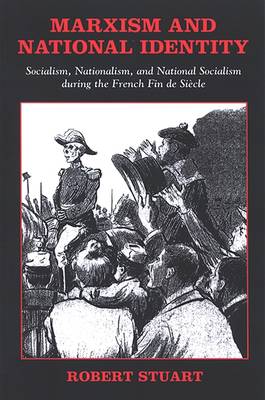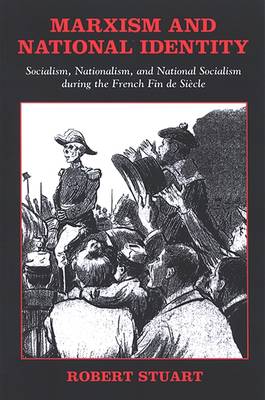
- Afhalen na 1 uur in een winkel met voorraad
- Gratis thuislevering in België vanaf € 30
- Ruim aanbod met 7 miljoen producten
- Afhalen na 1 uur in een winkel met voorraad
- Gratis thuislevering in België vanaf € 30
- Ruim aanbod met 7 miljoen producten
Marxism and National Identity
Socialism, Nationalism, and National Socialism During the French Fin de Siècle
Robert StuartOmschrijving
Provides the first sustained analysis of the collision between Marxism and nationalism in France at the time of the Dreyfus affair.
Post-Marxists argue that nationalism is the black hole into which Marxism has collapsed at today's "end of history." Robert Stuart analyzes the origins of this implosion, revealing a shattering collision between Marxist socialism and national identity in France at the close of the nineteenth century. During the time of the Boulanger crisis and the Dreyfus affair, nationalist mobs roamed the streets chanting "France for the French!" while socialist militants marshaled proletarians for world revolution. This is the first study to focus on those militants as they struggled to reconcile Marxism's two national agendas: the cosmopolitan conviction that "workingmen have no country," on the one hand, and the patriotic assumption that the working class alone represents national authenticity, on the other. Anti-Semitism posed a particular problem for such socialists, not least because so many workers had succumbed to racist temptation. In analyzing the resultant encounter between France's anti-Semites and the Marxist Left, Stuart addresses the vexed issue of Marxism's involvement with political anti-Semitism.
Specificaties
Betrokkenen
- Auteur(s):
- Uitgeverij:
Inhoud
- Aantal bladzijden:
- 315
- Taal:
- Engels
- Reeks:
Eigenschappen
- Productcode (EAN):
- 9780791466704
- Verschijningsdatum:
- 19/01/2006
- Uitvoering:
- Paperback
- Formaat:
- Trade paperback (VS)
- Afmetingen:
- 153 mm x 228 mm
- Gewicht:
- 435 g

Alleen bij Standaard Boekhandel
Beoordelingen
We publiceren alleen reviews die voldoen aan de voorwaarden voor reviews. Bekijk onze voorwaarden voor reviews.











